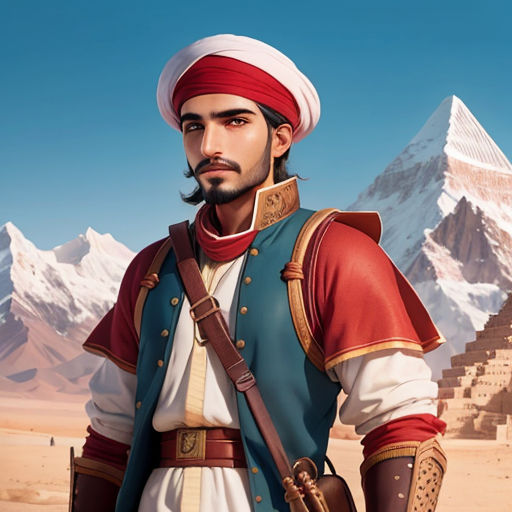
Ibn Battuta's Adventures Around the World
By Storybird

05 Jun, 2023

Once upon a time, in the 14th century, a young boy named Ibn Battuta was born in Morocco. He grew up listening to stories of adventure and exploring distant lands. As Ibn Battuta grew older, his thirst for adventure only intensified, and he dreamt of discovering new places like his ancestors. Little did he know that his desire for exploration would take him on a journey full of surprises, challenges, and new discoveries.

Ibn Battuta's father was a respected judge in Morocco, and it was expected that he would follow in his footsteps and study law. Ibn Battuta did study law, but his heart was set on seeing the world outside of Morocco. He dreamed of traveling to far-off lands and meeting new people. His wanderlust was too strong to ignore, and so he decided to embark on a journey that would take him across continents and oceans, and change his life forever.

At the age of 21, Ibn Battuta set off on his first adventure. He began his journey riding a donkey across the Sahara desert to Egypt, where he met a renowned scholar named Sheikh al-Islam. The scholar was impressed with Ibn Battuta's thirst for knowledge and invited him to join him on a trip to Mecca. Ibn Battuta was thrilled to have the opportunity to fulfill his lifelong dream of making the pilgrimage to Mecca. But he had no idea just how much the journey would change him.
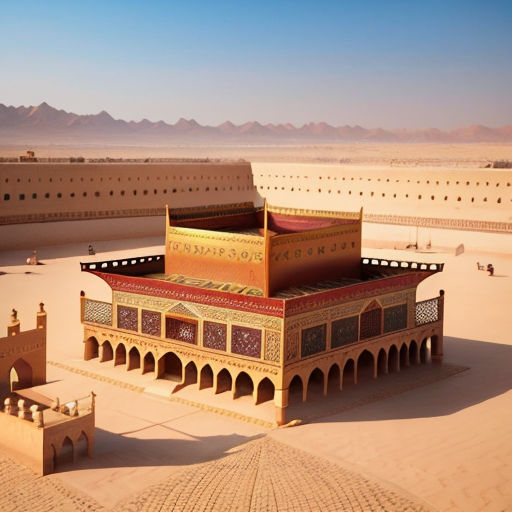
Ibn Battuta traveled through Tunisia, admiring the architecture of the Great Mosque of Kairouan, and then sailed down the Nile River in Egypt. He visited Cairo and its bustling markets, and then journeyed to Palestine to see Jerusalem. Ibn Battuta was in awe of the holy city and its people, but he knew that his ultimate goal was still waiting for him in Mecca.
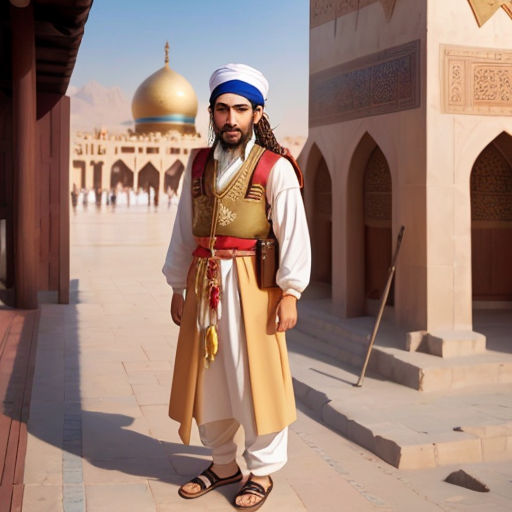
At last, Ibn Battuta arrived in Mecca and witnessed the Hajj, the annual Islamic pilgrimage. He saw thousands of people from different corners of the world gathered together in one place, dressed in white robes, performing the same rituals. It was a breathtaking sight, and he felt humbled to be a part of it. He prayed for his family and friends, and for all those in the world who were suffering. It was an incredible experience that would stay with him forever.
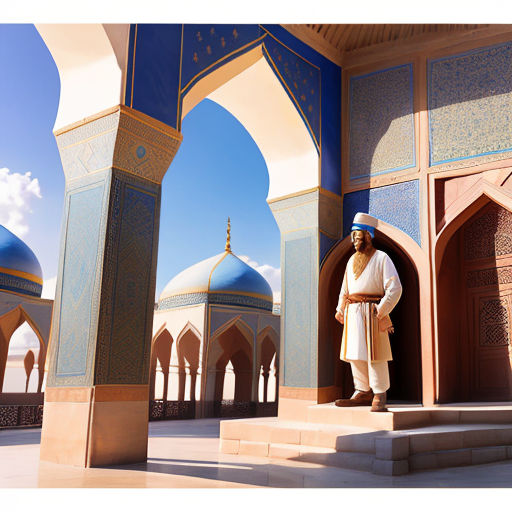
After completing his pilgrimage, Ibn Battuta continued on his travels. He survived a treacherous sea voyage to reach Iraq, where he visited Kufa and Basra. He explored the ancient ruins and marveled at the diverse landscape of the region. Ibn Battuta faced many challenges on his journey, but he remained steadfast in his pursuit of adventure.
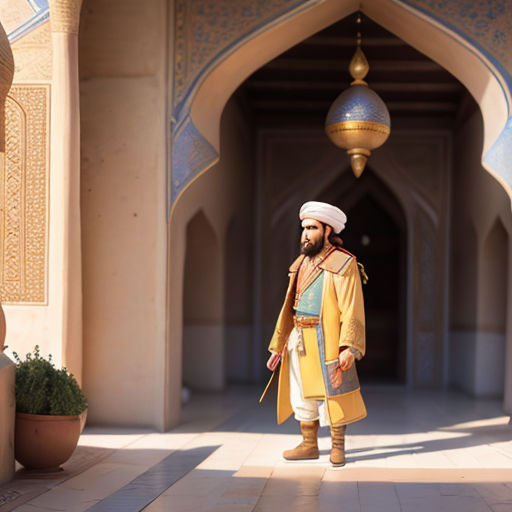
Traveling through Persia, Ibn Battuta experienced the rich culture and hospitality of the local rulers. He was welcomed into their homes and treated as an honored guest. He learned about the art of calligraphy and was introduced to new cuisines and fashions. His travels opened his eyes to the beauty and diversity of the world, and he gained a newfound appreciation for the different customs and traditions of the people he met.
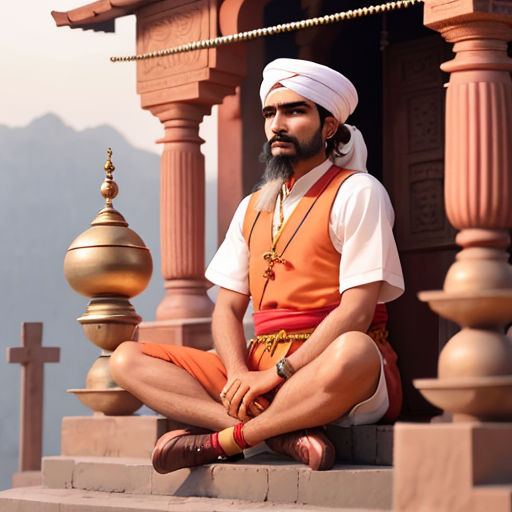
In India, Ibn Battuta met and befriended a powerful sultan. He was impressed with the sultan's grand court and the opulence of his palace. Ibn Battuta saw elephants and tigers for the first time and watched as the sultan's armies paraded before the court. He learned about Indian spices and the art of yoga. Ibn Battuta's travels taught him that the world was full of wonders and that he had only scratched the surface of all the adventures that lay ahead.

Ibn Battuta has to escape from Delhi when the sultan dies, and travels through India, experiencing its diverse culture and local customs. Ibn Battuta left the court after the sultan's death and explored India. He visited Delhi's Red Fort and Taj Mahal, marveling at their architecture and beauty. He saw the Ganges River and bathed in its sacred waters. He rode on elephants and camels and tasted the spicy food of the region. Ibn Battuta's travels in India gave him a deeper understanding of the country's complex history and diverse culture.

Ibn Battuta falls ill while traveling in the Maldives and nearly dies, but recovers with the help of kind locals. After leaving India, Ibn Battuta sailed to the Maldives. He felt weak and feverish, and soon discovered he had contracted a severe illness. The locals took care of him, bringing him food, water, and herbs to help him heal. He rested on the beach and watched the waves, feeling grateful for their kindness. After several weeks, Ibn Battuta recovered, and he continued his journey, feeling grateful to be alive.
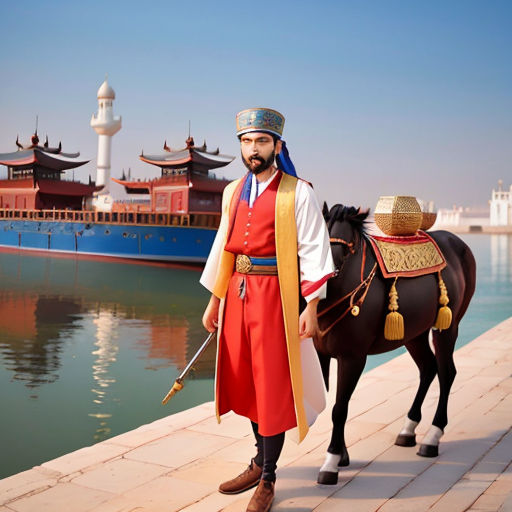
Ibn Battuta travels to China and becomes a judge for a short time in the city of Quanzhou. Ibn Battuta arrived in China and was greeted by kind locals. He traveled to Quanzhou, where he lived in a Muslim community and became a qadi or judge. He presided over several cases, using his knowledge of Islamic law to settle disputes. He explored the city's bustling markets and saw its unique architecture. Although he was only there for a short time, he learned a great deal about Chinese culture and made many new friends.
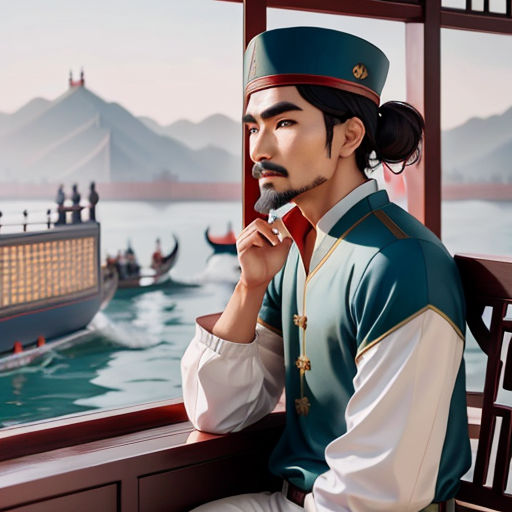
Ibn Battuta found himself facing new challenges as he traveled through China. The language barrier proved to be a significant obstacle, as few people spoke Arabic or any other language that he knew. He struggled to communicate with the locals, often resorting to hand gestures and other non-verbal cues. The cultural differences were also significant, as he was unfamiliar with many Chinese customs and traditions. However, Ibn Battuta was determined to continue his travels and learn as much as he could about this fascinating country.
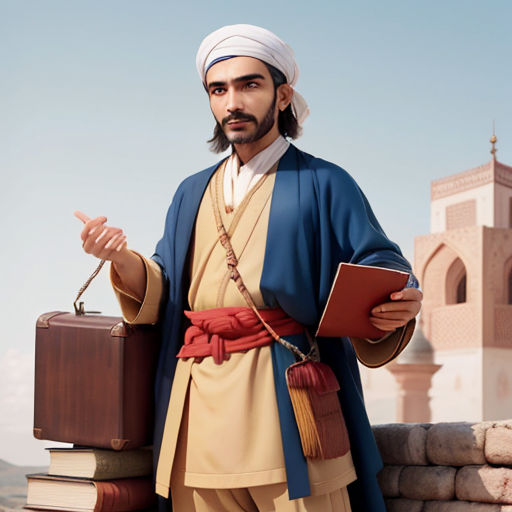
After many years away from home, Ibn Battuta finally returned to Morocco, eager to reunite with his family and friends. However, he was shocked to discover that no one recognized him because of his extensive travels. He had been gone for so long that his appearance and mannerisms had changed significantly, and he had to introduce himself to his loved ones. Nevertheless, they welcomed him back, and he spent the rest of his life recounting his incredible adventures to anyone who would listen.
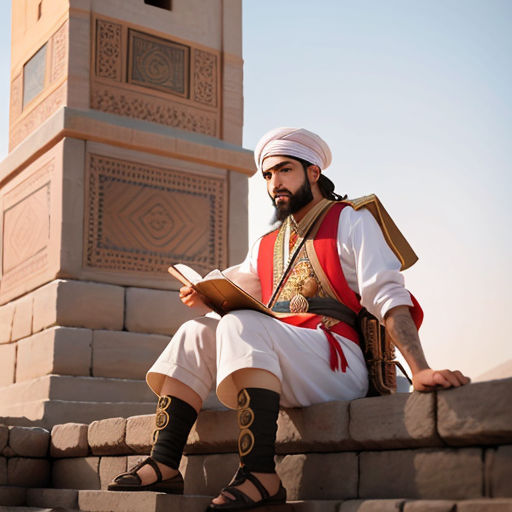
As a renowned traveler and explorer, Ibn Battuta wrote a book about his journeys called the Rihla. The book was incredibly popular and inspired many other explorers to set out and discover the world. Ibn Battuta's writing was vivid and descriptive, painting a picture of the exotic lands he had visited and the people he had met. His book remains a popular read to this day, and is a testament to his life's work as a traveler and adventurer.
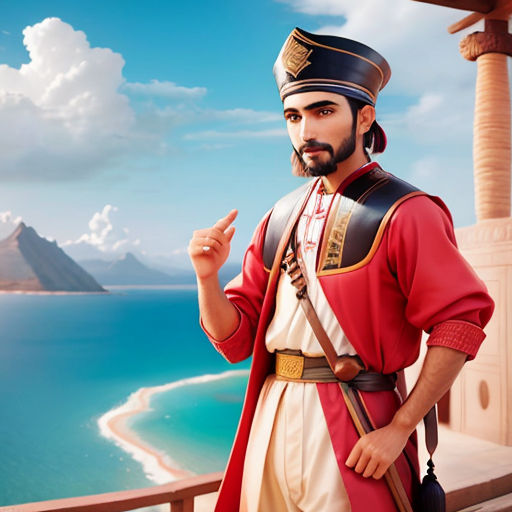
After his incredible travels, Ibn Battuta returned to his home country of Morocco. He reflected on his journeys and realized how much he had learned about the world and its diverse cultures. He became an advocate for travel and understanding different ways of life, encouraging others to set out on their own adventures. Ibn Battuta's stories of courage and exploration inspired people all over the world to see the beauty of other lands and gain a deeper understanding of the global community.
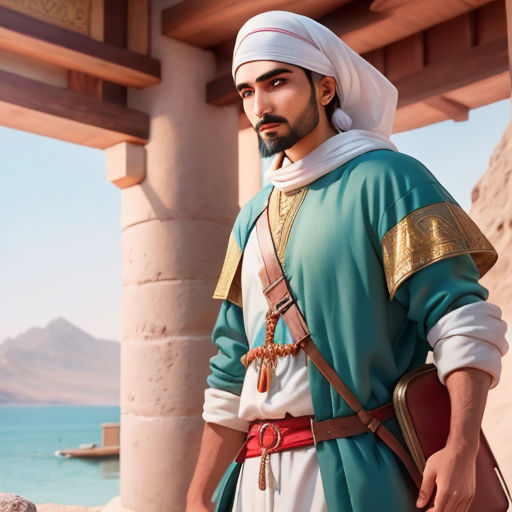
Years after his travels had ended, Ibn Battuta's legacy lived on. His book, the Rihla, continued to inspire readers and adventurers alike. His stories helped to break down cultural barriers, opening people's eyes to the diversity and richness of our world. He was remembered as one of the greatest travelers and writers of all time, a man whose love of adventure led him to explore the farthest corners of the earth, and whose words continue to inspire people today. Ibn Battuta's life was a testament to the power of travel and learning, to the boundless curiosity and courage that lies within each of us. He is a true hero, and a shining example of the best in human nature.